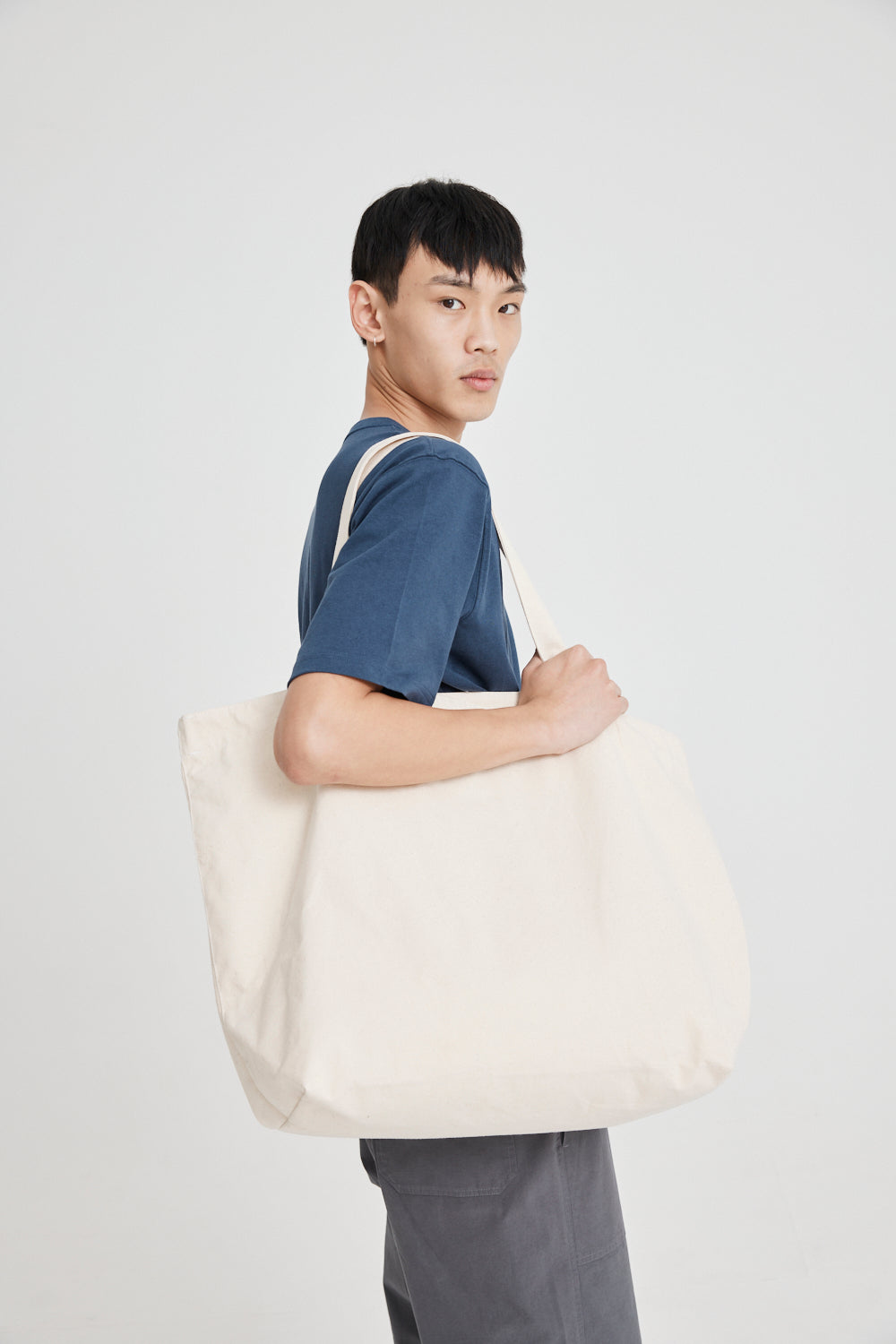Rolling out over the course of this year, Worktones products will be packed in a plastic-free material called glassine paper.
Glassine is made from Forest Stewardship Council (FSC)-certified wood pulp, which ensures the materials are responsibly sourced and managed. It has a paper-like hand feel and, with the exception of the adhesive sticker that secures the bag, is recyclable and compostable.
Previously, Worktones’ products were packed in recycled poly bags, but there were flaws in their sustainability.
It’s a key part of the Worktones’ ethos is to minimise our environmental impact. Since the brand’s inception, we’ve strived to only use natural fabrics (cotton, linen or hemp) and create an evergreen ready-to-wear range. Rarely phasing out products, avoiding overconsumption and wasted stock.
Worktones’ Head of Design & Production, Cheryl Corpus, said that our packaging clearly didn’t align with those values.
“With every move and practice the brand makes, we try to reduce our carbon footprint, so our packaging stuck out like a sore thumb.
“Although the research shows that recycled poly bags are 79% better than using virgin poly, it’s still not an effective solution. It’s common that recycled poly is mixed with virgin materials anyway because recycled poly isn’t 100% stable. There is also no way, especially in Australia with the collapse of REDcycle, for us to properly recycle and reuse soft plastics.
It’s a pressure point because there is a lot of greenwashing in the industry. It can be difficult to distinguish what’s genuinely sustainable and what just gives that perception.
- Cheryl Corpus, Worktones Head of Design & Production
“The market is saturated with recycled poly and biodegradable-labelled bags, but the reality is they still end up as waste, emit microplastics and fail to break down in a reasonable timeframe.
“Across everything we touch, we’re aiming for full circularity. There is no closed loop for recycled poly bags. They’re just a bandaid over a bigger problem.
“We spoke to different suppliers and found the best option for us was glassine bags. On top of being sustainable, they’re more aesthetically pleasing than the recycled poly, quite sturdy and resistant to moisture.
“A portion of our goods are shipped via sea freight containers, coming from international ports where they can sit in quite humid conditions which creates a risk of mould. From a practical perspective, glassine ticks so many boxes,” said Cheryl.
Worktones went through a research and testing phase before fully committing to glassine. We started with some generic samples before customising the bags with our brand, messaging and sizing requirements.
“We were super happy with the look, feel, durability and security of our products. We made the decision midway through 2024, but waited until we went through our recycled poly stock before going into production,” said Cheryl.
As of January 2025, a portion of our products are already in the glassine bags and it’s expected that we’ll fully transition by midway through the year.
Cheryl said that it feels great to have found a much better solution for the planet.
It’s our responsibility to eliminate the nasties out there because if not us, who else? My hope is that customers will recycle or compost the bags, but regardless of how they’re disposed of, they will just naturally degrade.
- Cheryl Corpus, Worktones Head of Design & Production
To dispose of our product packaging, remove the adhesive strip where it’s labelled on the bag and then put the rest into your recycling or compost bin.
















